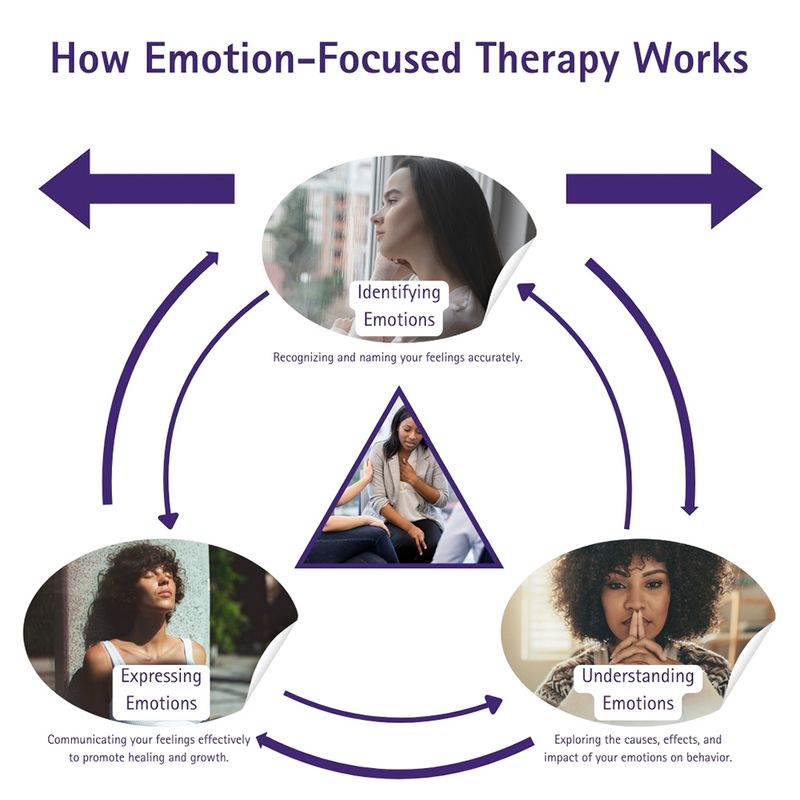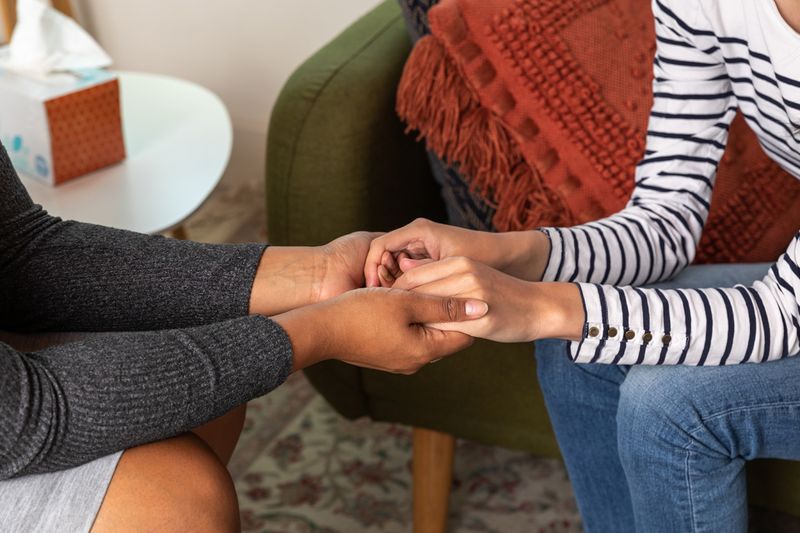Therapists often employ specific phrases to navigate the complex emotional landscapes of their most challenging clients. These phrases are not mere words; they are carefully crafted tools that can soothe, encourage, and empower. The beauty of these phrases is that their efficacy transcends the therapy room and can be applied to everyday interactions. Understanding and utilizing these expressions can enhance communication, build resilience, and foster deeper connections with others. This article explores eight such powerful phrases, each with its unique ability to transform difficult situations into opportunities for growth and healing. Let’s explore how these simple yet profound words can make a significant impact.
1. I understand this is difficult

“I understand this is difficult” is a phrase that validates the emotional struggle a person is experiencing. It assures them that their feelings are neither trivial nor dismissed. This acknowledgment creates a safe space for patients to express themselves without fear of judgment. It serves as a bridge, allowing a therapist to connect with the patient’s inner world. By expressing empathy, they foster trust and openness.
This phrase can be a balm to anyone feeling overwhelmed by life’s challenges. Offering such understanding can help diffuse tension and build a foundation for meaningful dialogue. It reflects an essential human need to feel seen and heard.
During tough times, knowing that someone comprehends your struggle can be incredibly reassuring.
2. It’s okay to feel this way

“It’s okay to feel this way” provides permission for emotions to exist without shame or guilt. In a world that often stigmatizes vulnerability, these words offer a refuge of acceptance. They assure patients that their feelings are natural and part of the human experience.
This phrase can be a powerful tool in personal relationships, as it encourages openness and emotional honesty. Allowing space for emotions without judgment fosters a nurturing environment.
By normalizing feelings, therapists help patients navigate their emotions with more ease, turning potentially isolating experiences into shared human connections. Everyone deserves to have their emotions accepted and understood.
3. What would you like to achieve?

“What would you like to achieve?” is a question that redirects focus from problems to solutions. It empowers patients to consider their desires and set tangible goals for improvement. Therapists use this phrase to inspire proactive thinking, encouraging individuals to envision their desired outcomes.
In everyday life, this question can shift conversations toward positive action. It motivates people to define their aspirations clearly, making them more attainable.
By asking about goals, therapists not only encourage self-reflection but also foster a sense of agency and purpose. It transforms vague wishes into concrete plans, providing direction and motivation for personal growth.
4. I hear you

“I hear you” is more than just an acknowledgment. It’s a confirmation that the speaker’s words have been truly absorbed. This phrase reassures patients that their voice matters, fostering a sense of validation.
In broader interactions, saying “I hear you” can bridge gaps in communication, making conversations more meaningful. It encourages openness and honesty, allowing for more authentic exchanges.
The power of being genuinely heard should not be underestimated. Whether in therapy or everyday life, acknowledging another’s words can be profoundly affirming, creating stronger, more empathetic connections.
5. Let’s explore this together

“Let’s explore this together” emphasizes collaboration over dictation. It invites patients to be co-pilots on their journey to understanding and healing. Therapists use this phrase to foster a team mentality, ensuring that patients feel supported and involved.
In personal interactions, this sentiment can promote unity and cooperation. It suggests that challenges will be faced as a team, reinforcing mutual support.
Offering to explore issues together transforms therapy into a partnership. It gives patients confidence that they are not alone in their struggles, building trust and encouraging active participation in their own healing process.
6. You are not alone

“You are not alone” offers solace during moments of distress. It reminds patients that their struggles are shared and that support is available. These words can be incredibly comforting, reassuring individuals that they have a support system.
In broader terms, this phrase can be a lifeline to anyone feeling isolated. It conveys empathy and solidarity, emphasizing that companionship is just a conversation away.
Reassuring someone that they are not alone can alleviate feelings of loneliness and despair. Whether offered by therapists or friends, it underscores the importance of human connection in overcoming life’s challenges.
7. How can I support you?

“How can I support you?” is a proactive offer of assistance. It puts the patient in control, allowing them to express their needs and desires. Therapists use this phrase to demonstrate willingness to assist in a manner that is most effective for the individual.
In everyday interactions, asking this question can open doors to meaningful support. It shows care and commitment to the other person’s well-being.
Offering support in a personalized manner empowers individuals and strengthens relationships. It demonstrates a readiness to listen and act upon the other’s needs, creating a more supportive and understanding environment.

Well, hello there!
My name is Jennifer. Besides being an orthodontist, I am a mother to 3 playful boys. In this motherhood journey, I can say I will never know everything. That’s why I always strive to read a lot, and that’s why I started writing about all the smithereens I came across so that you can have everything in one place! Enjoy and stay positive; you’ve got this!

